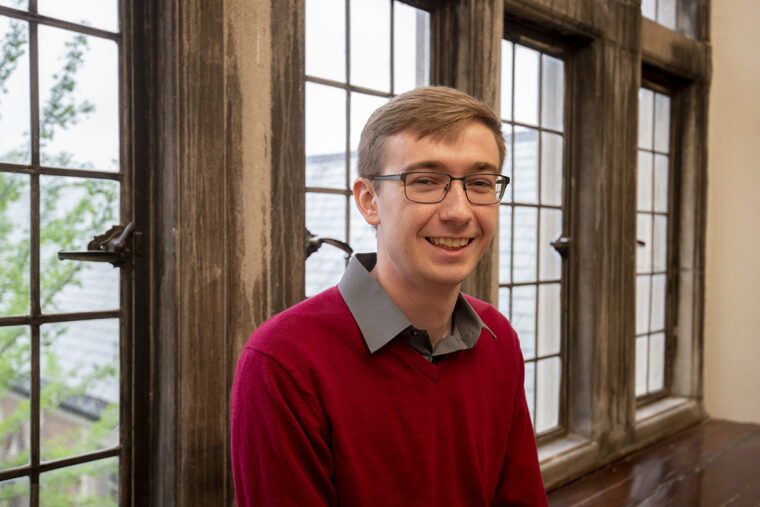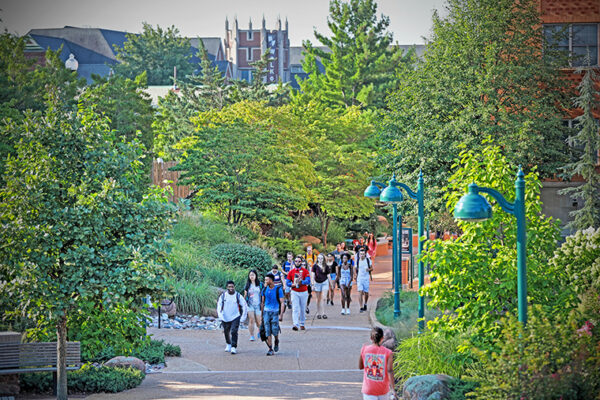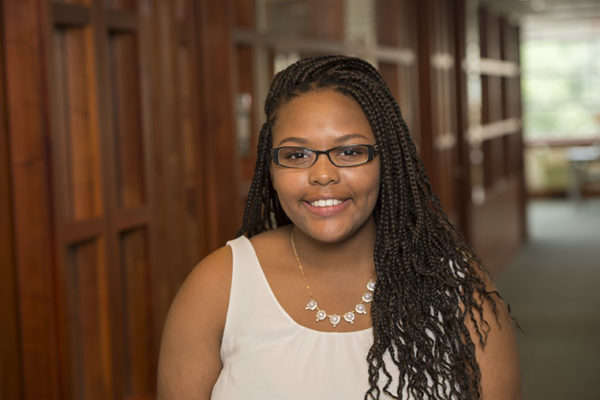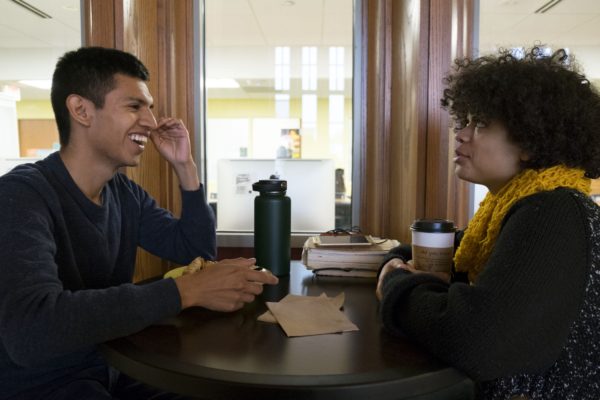Washington University in St. Louis senior James Schisler grew up 100 miles west of St. Louis in St. James, Mo., population 4,216. The town has four stoplights, three wineries and one high school, which graduates about 100 students a year.
Among Schisler’s classmates, about 75 percent enrolled in college — impressive given only 59 percent of rural high school graduates head directly to higher education. But when only 20 of his friends went back to college for their sophomore years, Schisler was determined to find out why.
 “I thought there must be something wrong with my school, my town,” said Schisler, who graduates this month with a degree in geophysics in Arts & Sciences. “But the more research I did, the more I learned that this was a pretty standard outcome for rural students.”
“I thought there must be something wrong with my school, my town,” said Schisler, who graduates this month with a degree in geophysics in Arts & Sciences. “But the more research I did, the more I learned that this was a pretty standard outcome for rural students.”
Here, Schisler talks about his research, how he found his way as a rural student at an urban university and why rural students must be part of higher education’s diversity discussion.
Why did so many of your friends not return to college after their first year?
For some, it was too expensive, or they weren’t getting good grades or they couldn’t see how their classes were relevant to the work they wanted to do. Basically it came down to fit — they didn’t go to the school that would best serve their needs. I’ve learned that experience is pretty common. Rural students go to college at lower rates than their urban or suburban peers, regardless of race or economic status. They are less likely to apply to selective colleges. They apply to fewer colleges. And they are more likely to leave before getting a degree.
Why was your experience different?
It wasn’t because I was better or smarter; it was because of the amazing communities on campus that I have been a part of. I’m a Danforth Scholar and a Civic Scholar, I do a cappella, I’m an RA, I’m part of Deneb STARS (a cohort program launched in 2017 to support low-income and first-generation students). All of these communities make me feel supported and that I belong here.
That’s why I said yes when I was asked to be a Deneb STARS academic peer mentor. I was hired to help with academic content and, yes, it’s really important to provide academic support to students who didn’t grow up with access to state-of-the-art technology or enrichment programs. But I found that wasn’t the most important part of the job. It was helping create a community where students felt supported and knew they weren’t alone.
Why should recruiting, supporting rural students be a priority?
I don’t think you can be an institution that stands for equity and diversity and then proceed to ignore an entire group of students. I know that it is logistically really hard to recruit rural students, but rural America is an important part of the country. About 30 percent of high school students attend a rural school. So if you want the best and the brightest, it’s foolish to not recognize the potential of those students.
What does it mean to be from a rural community?
The federal government has 17 definitions of the word “rural.” Some are tied to population density; others are tied to distance from a metropolitan area. For me, having a rural identity means I have a very strong attachment to place and community. That may be one reason why rural students are less likely to leave home to go to elite colleges. It may also be why it’s hard to make friends at a new school. College was the first time since kindergarten that I had to make new friends.
So what is the plan after graduation?
I want to work at a college, perhaps on college access issues. I’ve been passionate about education all of my life, but I always thought that was just because I grew up with two parents who are both teachers. What else were we going to talk about at the dinner table — “How was school today?” “Fine, how was school today for you?” But over my four years here, I’ve realized education is where my brain always wants to go.



